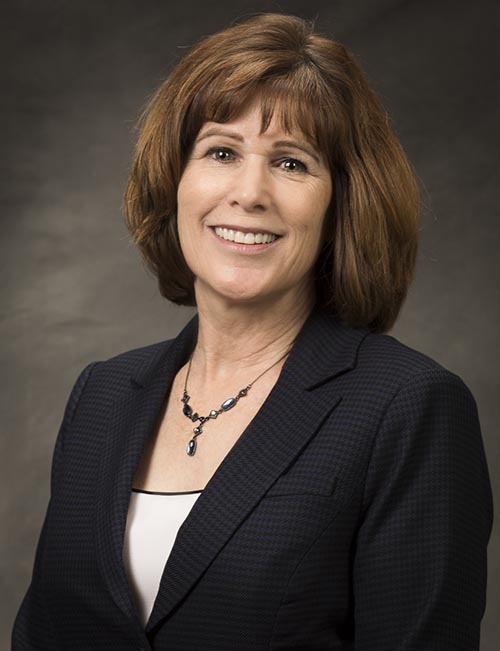 Dianne Hyson, who has been at Sacramento State since 2002, is the new dean of the College of Social Sciences and Interdisciplinary Studies. (Sacramento State/Andrea Price)
Dianne Hyson, who has been at Sacramento State since 2002, is the new dean of the College of Social Sciences and Interdisciplinary Studies. (Sacramento State/Andrea Price)Dianne Hyson feels right at home in her new role as the incoming dean of the College of Social Sciences and Interdisciplinary Studies. In a way, she has been preparing for it for more than 16 years.
She arrived at Sacramento State in 2002 as a professor in the college, served as a department chair for five years and has been in the associate dean role for more than six years.
This month she was chosen to permanently lead SSIS as it seeks to raise its profile, continue to increase faculty diversity and improve graduation rates, in addition to other priorities Hyson has cited.
She brings a deep understanding of the history of the college and its potential to have a positive impact on students, the Sacramento community and beyond.
“We are already doing great work, and there is more to come,” Hyson said.
The college has 14 academic departments, including Anthropology, Asian Studies, Economics, Environmental Studies, Ethnic Studies, Family and Consumer Sciences, Gerontology, Liberal Studies, Political Science, Psychology, Public Policy and Administration, Social Sciences, Sociology, and Women’s Studies, in addition to several nationally recognized centers and programs.
Academia is Hyson’s second career. Before arriving at Sac State, she was a registered dietitian nutritionist. She has earned degrees in nutrition and clinical dietetics, a master’s in experimental medicine and a doctorate in nutrition science.
Hyson said she believes in taking knowledge, theory and science “from the bench to the bedside,” transferring the skills learned in classrooms and labs to the broader community. She helped develop Sac State’s Cardiovascular Wellness Program, which offers community members a chance to work with students and faculty experts to improve their heart health through education sessions, exercise programs and lifestyle changes.
As SSIS dean, Hyson said, she is committed to building a more diverse and inclusive college.
“I’m very interested in helping under-represented people who face daunting challenges,” including economic, social and cultural barriers to education, she said.
The college has improved its four-year graduation rate from 16 percent to 22 percent in recent years, Hyson said, but that number must continue to rise.
“We have got to be an institution that graduates students,” she said, and creates pathways to their success. “This includes maintaining our commitment to meaningful outcomes in our students’ education and supporting the faculty and staff who help get them there,” Hyson said.
Hyson is working with the Office of Inclusive Excellence to assess how the college’s faculty members can better reflect student needs, and to continue to improve outreach and recruitment efforts, she said.
She intends as dean to “help cultivate a culture where everyone’s voice is heard.” - Cynthia Hubert
